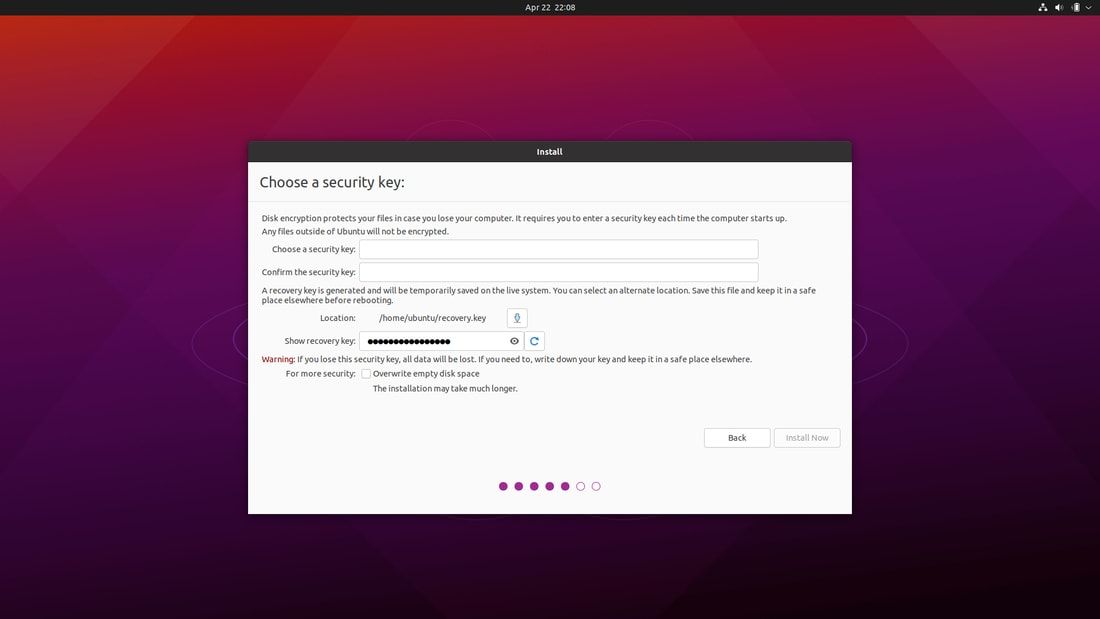Linux is one of the driving factors behind today’s ever-growing internet scene. In fact, over 70% of all websites are powered by Unix, with Linux taking 58% of that number. The sheer amount of features provided by Linux-based distros make them suitable for web, file, and DNS servers alongside enterprise infrastructures.
To help our readers choose the best Linux server distributions, we’re outlining the top 10 options available to you.
1. Ubuntu Server

Ubuntu’s server counterpart offers a competitive feature set that makes it suitable for a range of tasks. You can use it for spinning up web servers or file servers as well as for powering cloud services. The highly scalable nature of Ubuntu Server also makes it an excellent choice for emerging businesses.
As of this writing, the latest version is 21.04, which will be supported till January 2022. The current long-term support version for this Linux server distribution is 20.04 LTS. You can also choose from several subscription plans if you need managed services or extended support.
2. Debian

Debian is one of the most influential Linux distributions in terms of stability and ease of use. Its extensive hardware support makes it easy to fire up servers virtually anywhere. Moreover, the Debian stable branch offers the best security features and package upgrades to ensure continuous uptime. This also makes it super easy to harden your Linux servers.
Debian offers Long Term Stable (LTS) releases without any charge. These provide support for five years. Enterprises can also get the Extended Long Term Support (ELTS) as part of a commercial offering. This will add another five years of support to your business server.
3. Red Hat Enterprise Linux Server

Red Hat Enterprise Linux is a commercial OS that offers exceptional scaling as well as rock-solid security. A large majority of the Fortune 500 companies use it for powering their IT infrastructure. Red Hat’s robust subscription plans make it suitable for rolling out emerging technologies. You can rely on Red Hat for powering bare-metal servers as well as virtual machines, containers, and cloud solutions.
The LTS releases of this Linux server distribution offer up to ten years of software support. Red Hat also offers Extended Life-cycle Support (ELS) as part of their Standard or Premium subscriptions to customers of the RHEL Server.
4. CentOS

CentOS is an enterprise-grade Linux distribution developed and maintained by the open-source community. Based on Red Hat Enterprise Linux, CentOS offers what RHEL has to offer without any cost. You can use CentOS for powering business servers as well as desktops and workstations.
One key benefit of CentOS is that package updates are much more infrequent. This makes it easy to maintain coherent servers and reduces bugs related to software updates. The strong security implementations of CentOS also make it hard to break in. However, due to a recent policy shift by Red Hat, support for CentOS may end sooner than expected. Consider switching to CentOS Stream if this worries you.
5. SUSE Linux Enterprise Server

SUSE Linux Enterprise Server (SLES) is a robust server operating system focusing on stability and ease of use. All components of this server distro are tested rigorously before their inclusion. This results in a secure and homogeneous system suitable for powering the technologies of the future.
The current LTS releases offer life-cycle support for up to thirteen years. New major releases hit the market every 3-4 years, and minor releases are rolled yearly. Overall, it’s suitable for businesses that need highly adaptable and secure servers for production needs.
6. Fedora Server

Fedora Server is a community-developed server distribution that makes it super easy to use the latest software packages on your server. It has a short life cycle, around thirteen months for each version. However, it offers the luxury of choosing from multiple package managers and modules. This can make future migrations of your ecosystem much easier.
The web-based GUI interface Cockpit simplifies the server management process for beginners. Admins can control every aspect of their server using the interface. Additionally, the inclusion of the FreeIPA identity management solution helps risk assessment, mitigation, and policy development.
7. openSUSE Leap

OpenSUSE Leap is the stable branch of openSUSE, a community-based project that promotes free and open-source software (FOSS). Leap has a well-defined release approach, rolling out new versions annually and providing security fixes in between. This rigorous release cycle helps planning server upgrades ahead of time. This is why a lot of business servers run openSUSE Leap.
Plus, the YaST configuration manager makes server management simpler through its robust control panel. The command-line tool Kiwi, on the other hand, helps to orchestrate Linux images for enterprise purposes. This allows admins to build business appliances for bare-metal servers as well as virtual machines and containers.
8. Oracle Linux

Oracle Linux offers a complete package for businesses who need stable, RHEL-compatible Linux server distributions. Some key features of Oracle Linux are its Unbreakable Enterprise Kernel (UEK) and almost zero downtime. The UEK focuses heavily on performance, stability, and continuous availability.
Moreover, a wide array of deployment options make this server distro suitable for emerging businesses. The cloud-first approach of Oracle also helps companies shift their infrastructure at ease. Overall, it’s a great server distro for enterprise usage.
9. Fedora CoreOS

Fedora CoreOS is a specialized distribution built for running containerized applications at ease. It’s an automatically updating operating system which makes it lucrative for high-performance web apps. The container first approach of Fedora CoreOS helps businesses distribute workloads and scale faster.
CoreOS comes with in-built support for Docker, Podman, and OpenStack alongside other containerization tools. There are three different release streams for this server distro, stable being the safest for enterprise use.
10. Slackware Linux

Slackware Linux is an advanced server distribution that focuses largely on stability. It’s one of the oldest Linux server distributions and has extensive support for legacy hardware devices. Moreover, Slackware provides a full set of tools for spinning up a web, file, and mail server.
Most admins who have used Slackware in the past can vouch for the reliability it offers. So, if you need a highly stable and efficient server distro, Slackware might be a good pick.
Linux Server Distributions for Enterprises
Linux server distributions come in different flavors. Commercial server distributions such as Ubuntu, Red Hat, and SUSE Enterprise offer seamless management capabilities and professional support. Whereas systems like Debian, CentOS, and openSUSE thrive on community support for their development.
The server distros mentioned above are suitable for enterprise usage. However, if you only need something for your next open-source project, consider trying some Linux distributions for developers.

